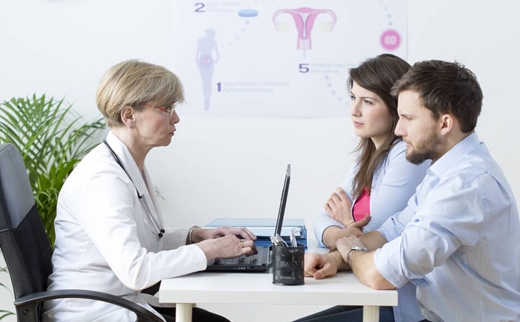
In recent years, societal changes and lifestyle choices have contributed to a decrease in family size and an increase in age-dependent female infertility rates. Women today often prioritize their education and career goals, leading to delayed childbearing. Pursuing higher education and establishing a successful career can take precedence over starting a family at a younger age.
Women's increased participation in the workforce has resulted in more demanding professional lives. Balancing career responsibilities with family planning can be challenging, leading some women to postpone pregnancy until they feel more established in their careers.
As women have greater control over their reproductive choices, many choose to delay starting a family. This delay can be influenced by personal goals, financial considerations, or the desire to ensure stability before having children.
The development and widespread use of effective and reliable birth control methods since the 1960s have provided women with increased control over their reproductive choices. These methods, such as hormonal contraception and intrauterine devices (IUDs),allow women to plan pregnancies more consciously and delay childbearing until they are ready.
The traditional notion of the nuclear family has evolved, and there is now greater acceptance and recognition of diverse family structures. This shift, along with changing societal norms, has contributed to a decrease in family size as individuals and couples make choices that align with their personal circumstances and goals.
While these changes have provided women with more autonomy and flexibility in family planning, they have also resulted in an increase in age-dependent female infertility rates. As women age, their fertility naturally declines due to factors such as a decrease in ovarian reserve and an increased risk of chromosomal abnormalities in eggs. This can make it more challenging to conceive as women get older, especially beyond the age of 35.
It is important for individuals and couples to be aware of the potential impact of delayed childbearing and age-related fertility decline. Seeking guidance from healthcare professionals and fertility specialists can help individuals make informed decisions about family planning, fertility preservation options, and the appropriate timing for starting a family.
Overall, societal changes and lifestyle choices have influenced family size and fertility patterns, highlighting the importance of education, awareness, and access to reproductive healthcare services to support individuals in their family planning journeys.
For many women, the desire to conceive and start a family is a deeply cherished dream. However, fertility can be a complex and varied journey, and some women may face challenges due to factors such as decreased egg reserves.
I will discuss the concept of reduced ovarian reserve, its effects on fertility, and the options available to women in this situation.
Diminished ovarian reserve refers to a condition in which a woman's ovaries have a reduced number of eggs available for fertilization. What does poor ovarian reserve mean?
It is often associated with advanced maternal age, but it can also occur in younger women due to various factors such as genetic predisposition, medical conditions, or previous treatments like chemotherapy. Women with diminished ovarian reserve may experience irregular menstrual cycles and difficulties in concieving.
Ovarian reserve, which refers to the number and quality of a woman's eggs, naturally decreases with age. This decline is primarily attributed to the aging process and various factors that affect the ovaries over time.
Here are some key factors that contribute to the decrease in ovarian reserve:
It is important to note that while the decline in ovarian reserve is a natural process, the rate of decline can vary among individuals. Some women may experience a more rapid decrease in ovarian reserve compared to others. Regular check-ups with a fertility specialist and timely consultations can provide valuable insights into a woman's reproductive potential and help guide family planning decisions.
Understanding the factors that contribute to diminished ovarian reserve can empower women to make informed choices regarding fertility preservation, family planning, and available assisted reproductive technologies when the time is right for them.
If a woman suspects she has diminished ovarian reserve or is experiencing difficulties conceiving, it is advisable to consult a fertility specialist. The specialist will conduct a thorough evaluation, which may include tests such as hormone assessments (e.g., follicle-stimulating hormone or anti-Müllerian hormone levels) and ultrasound examinations to assess the ovarian reserve. These tests help determine the quantity and quality of a woman's remaining eggs and provide valuable insights into her fertility potential.
While diminished ovarian reserve can present challenges, there are several fertility options available for women who wish to conceive:
While diminished ovarian reserve can pose challenges for women trying to conceive, it does not necessarily mean the end of their journey towards parenthood. With advances in reproductive medicine and assisted reproductive technologies, there are several options available to enhance the chances of pregnancy for women with decreased egg reserves. Consulting a fertility specialist and exploring the various options tailored to individual circumstances can help women navigate their unique fertility journeys and bring them closer to their dreams of starting a family.